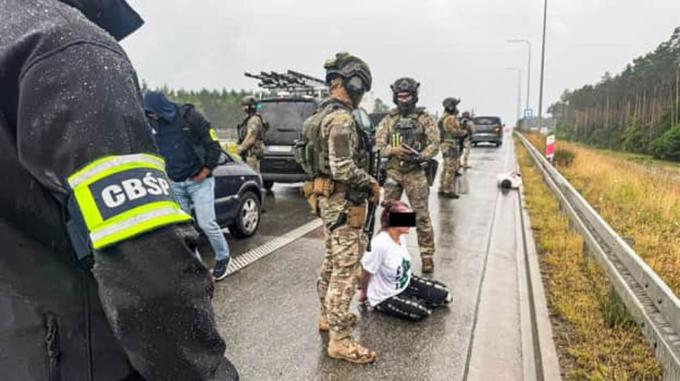Details of Ukrainian Arrests in Poland Linked to Migrant Abductions for Ransom

In late June, Polish law enforcement agencies carried out a large-scale operation resulting in the detention of four Ukrainian nationals suspected of committing brutal crimes involving the kidnapping of illegal migrants with the purpose of extorting ransom. According to official sources, all the detainees had legal residence permits in Poland. The oldest suspect, a woman, is 40 years old, and the youngest is just 20. They are charged with kidnapping, illegal border crossing, and participation in a criminal group. Unofficial reports from Polish authorities indicate that members of the gang were involved in organizing transportation of migrants via Belarus, who illegally entered the European Union, and actively engaged in kidnapping and demanding ransom in cryptocurrency. Details emerged at the end of June when the Central Investigation Bureau received information from humanitarian organizations about the kidnapping of two Ethiopian citizens. It was reported that the criminals held the victims in unknown locations, threatened their lives, and used brutal torture methods to force families to pay ransom. Photos depicting torture tools and naked, bound victims were circulated. Law enforcement quickly identified that the perpetrators had threatened the victims with firearms, stole their money and mobile phones, and transported them in a car trunk to Lubin. The families of the kidnapped received demands for ransom, but the victims managed to escape, and witnesses saw the men wandering the city. The police were informed, and an investigation was launched. It was also revealed that the criminals fled to Latvia, where they kidnapped three more minors. They restrained and confined the victims in a car trunk; one of them was beaten brutally with a club and tied to a tree. Video evidence of torture was sent to the victims’ families along with ransom demands. Cooperation among Polish, Latvian, Lithuanian, and Estonian law enforcement agencies was established to track down the perpetrators. By the end of June, with the involvement of anti-terror units, three suspects were detained near Ostrów Mazowiecki, and a fourth was apprehended in Skwierzyna. Currently, three of the four suspects are in custody. The investigation continues to identify other members of the gang. These events prompted Poland to introduce additional border checks with Lithuania and Germany starting from July 7, aimed at preventing illegal crossings and mitigating organized criminal activities.

